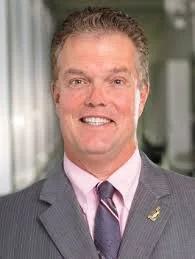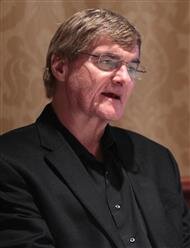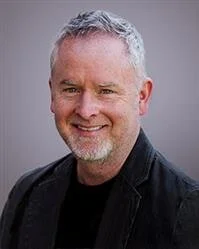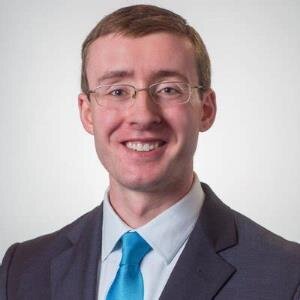Ron and Ed are delighted to welcome back Mark Koziel, this time in his new capacity as President and CEO at Allinial Global. Mark is a CPA, CGMA in the U.S. with over 20 years of experience in accounting, management, consulting, and advocacy.
A Bit More About Mark:
Today, Mark Koziel is the President and CEO of Allinial Global. Previously he was Executive Vice President – Firm Services for the American Institute of CPAs. He leads the Private Companies Practice Section (PCPS), Firm Relationship Management, Small Firms, Diversity & Inclusion, Young Member Initiatives, Technical Hotline and Center for Plain English Accounting.
Ed’s Questions: Segment One
Mark, I guess we can also say that you are now once again a fellow of the VeraSage Institute. You were a fellow formally but then your duties at the AICPA precluded you from holding that esteemed title but we kept the spot warm for you.
Mark, let's start here. What have we learned about the accounting profession in 2020? I mean, we could spend the whole show on that, right?
Ron refers to them as the front line, from a business perspective and continue to be. I think it was you who first said that you were having conversations with people as late as February, especially tax partners, who were saying there's no way that I could run my firm remotely and then six weeks later, bang you're all remote, now what?
Well, let's back up a second. Tell us about your new role at Allinial Global. First of all, for those of our listeners who do not know what Allinial Global is, tell us what that is, and then why you're so excited to be a part of it.
So Allinial actually holds the client relationship in a lot of those case. That's interesting. I wasn't aware of that.
Yeah, that does make a lot of sense. Now, where you're going with that. What attracted you to Allinial Global was it the fact that they had some of those things already in place or who were the member firms, that kind of thing?
Well that's great. Well we're definitely want to hear more about that, and I'm glad that the conversations that you're having are even to the point of talking about subscription pricing, huh?
Yeah, they do have to be the right options. That video, and we've had Dan Ariely on the show [Episode #43], is just jaw dropping every time I play it, and people who've seen it for the first time, you can just see their head begin to explode. Like, wait a minute, you actually changed the revenue mix and the profit because of having a choice that nobody picked, really? Really good stuff. So, what's your first hundred days? Well, not quite 100 days yet. Are you still getting your sea legs with it?
Interesting. So I'm curious, from a process standpoint, how did you do that? Did you develop a questionnaire? Or did you just kind of go in freeform and say I'm just going to have a conversation and listen?
I like that. Okay, so their dues are based on their revenue. So what you're saying is, “Hey, I'm going to help you double your revenue. Even better, I'm going to double your revenue and do it profitably, so that you grow profit. And even better, you're going to work less.”
Ron’s Questions: Segment Two
Welcome back everybody. We're here with Mark Koziel, president and CEO Allinial global, and Mark, you’d probably expect a recovering CPA to talk to you about accounting, but I'm not. I want to take you back to a cigar bar in Indianapolis. I think it was when you dropped on me this entrepreneurial leap that you had in mind. And then I think by the time we met the next time, it might have been New York, you had taken that leap. So tell me about your’s and your wife, Maryann's, leap to entrepreneurship [Craft’d].
I bet. Are you able to let people in with masks, social distancing, and all that?
How do you decide which wines to carry?
That has become the new hip thing to do. You know, sports celebrities, actors, used to buy restaurants. Now they buy wineries. I mean, there's I think there's over 300 wineries in Sonoma, and over 600 now in Napa, which is just outrageous when you think about it, every bit of land here is being turned into vineyards. It's just incredible. So tell me what wines you have run across that you love, or that were kind of unexpected or that you didn't know about before?
Yeah, because you did go to Lasseter, Pixar’s John Lasseter. And that's like 15 miles from my house and you liked it. It was a great one, you said
Yeah, there's a lot out here that do the blending. And that is really an art, it’s amazing.
What's your geographical reach? I mean, do you carry wines from around the world? Are there hotspots that are better sellers than others?
Do you guy’s serve food?
Yeah, a lot of people don't want to deal with the health department so they don't even bother serving food. You can't even get hors d’oeuvres or cheese and crackers or something. So probably not you because you're a recovering CPA, but has owning a business changed your perspective at all on the CPA/customer relationship?
Now, would that be Cuban cigars?
That's awesome. So you like being an entrepreneur? It's been fun so far?
What's the virtual wine tastings been like? How is that going? Because that seems weird, but I could see how it could be pretty neat, actually.
Did you do the Sideways tour?
Yeah, that movie killed the sales of Merlot.
Ed’s Questions: Third Segment
And we are back with Mark Koziel with Allinial Global, and Mark before we get back to accounting, I need to ask you just a follow up to Ron's question, does your wife's business have a subscription?
I may have told you this, we had a local restaurant here, it's called Destinations Wine Bar, they do sell food. But how they really have survived through the pandemic is they had wine storage lockers that they had as part of their subscription. So you could store your wine there. And that, you know, people are like, No, that's okay, just leave it there, even though they were closed for a while. Pretty cool idea. So let's talk a little bit about that. The business model changes that you're trying to implement with Allinial Global, subscription obviously, being one of them. What about things like that have really fallen off our radar, like machine learning and AI? Have they gotten to the point where they are just part of what we know, And we're not talking about them because they're embedded? Or were they pushed off because of COVID?
Is there a problem with that? One of the things that I think even Botkeeper got involved with is when you shift stuff overseas, do you have to let the customer know that you're doing that?
So as you've said, you're through about 140, or so, of your member firms, about halfway, is that right? What surprised you with those conversations, did anything take you by surprise, like, wow, I didn't realize that so many firms were here or behind or ahead, anything shocking?
That is really interesting. And is the timesheet, unfortunately, still universal globally as well, or have people getting away from that?
You spurred me on to mention something to you. Ron and I have done a lot of work with the bookkeepers in Canada over the last decade or so. And one of the things that we repeat over and over again, is that we think that the bookkeepers in Canada, first of all, they're far ahead of the bookkeepers in the United States, for whatever reason. In fact, they're even ahead, Ron and I think, of the accountants in the US. What are you seeing with regard to the para-professionals internationally? Are you seeing similar trends like that? Or is it more like Canada or more like the US?
Yeah, that's what's so interesting, the bookkeepers that we've taught in Canada do that same thing, they actually are shifting to advisory, which is pretty amazing, at least the group that we have been working with.
Yeah, we had a great conversation with the Chief Technology Officer of Sage, Aaron Harris [Episode #306], who I know you know, and he was talking about the same thing, that one of the things that we're learning inside Sage from an artificial intelligence standpoint and machine learning standpoint is the leverage that we can take, certainly keeping the data anonymous so that we're not sharing other people's data, But the insights that we're able to get with regard to transactions in the marketplace, and what's happening in the marketplace, is really incredible. The data is like oil, it's becoming almost as worth as much as the actual service itself.
Well, that's great. We're really excited for you, so after you get through this, you're going to put together some kind of a plan to say, and then, you know, here's where you're going to take this long term with Allinial Global, but you’re still in that learning phase. But the next step is to come up with a plan, right?
Well, I really look forward to see what you're going to do with that organization. I had some familiarity with them, did some work before you got on board and really like the firms that I did talk to so really looking forward to the next phase, but we are up against our break already. And Ron's going take you home for the fourth segment. But I want to thank you once again for being on the show and hope to have you back at a future point. I'm sure we will.
Ron’s Questions: Segment Four
Welcome back everybody. We're here with Mark Koziel. And Mark, you've got a worldwide perspective. Have you seen firms in different countries handling the COVID crisis differently or more innovatively? Have you learned anything about how they're dealing with it outside of the US?
Did they make the shift as quick to remote work as a lot of firms here did?
Yeah, I'm hoping the Results Only Work Environment comes out of this crisis as a testable, viable model. But the other thing I wanted to ask you about, given the worldwide view that you have, as you know we have a VeraSage colleague, Tim Williams, from the advertising space, he wrote a great book called Positioning for Professionals. He's a big believer in niching. Really putting your firm in a box, if you will; he likes to say, no box, no strategy. Do you see more of a movement towards niching, I mean, really focusing rather than trying to be all things to all people, and not wanting to turn away any revenue, but really just barreling in and just focusing on one particular industry or demographic or whatever?
You know, I've been using Peter Drucker's famous question about his idea of systematic abandonment. And the question is, “If you weren't in this line of business today, would you enter it? And if not, what are you going to do about it? And that's a really powerful question.
Mark, I have to ask you, and this relies more on your experience with the AICPA, but the Big Four in the UK is facing a split up, a spin-off of their audit and their consulting. The Financial Reporting Council, and the firms, are supposed to issue some reports today on how to do that. How do you see that playing out? And will that come to the USA?
So Mark, we've only got about a minute, or a little over. What advice would you give to a young aspiring CPA?
Excellent. Yeah, I used to joke that who would you notice first, garbageman going on strike or CPAs? And I have to say CPAs would probably be the right answer this year. So Well, Mark, thank you so much. This has been wonderful. We can't wait to have you back and keep doing the great work at Allinial Global.
Bonus Content is Available As Well
Did you know that each week after our live show, Ron and Ed take to the microphone for a bonus show? Typically, this bonus show is an extension of the live show topic (sometimes even with the same guest) and a few other pieces of news, current events, or things that have caught our attention.
Click the “FANATIC” image to learn more about pricing and member benefits.


























